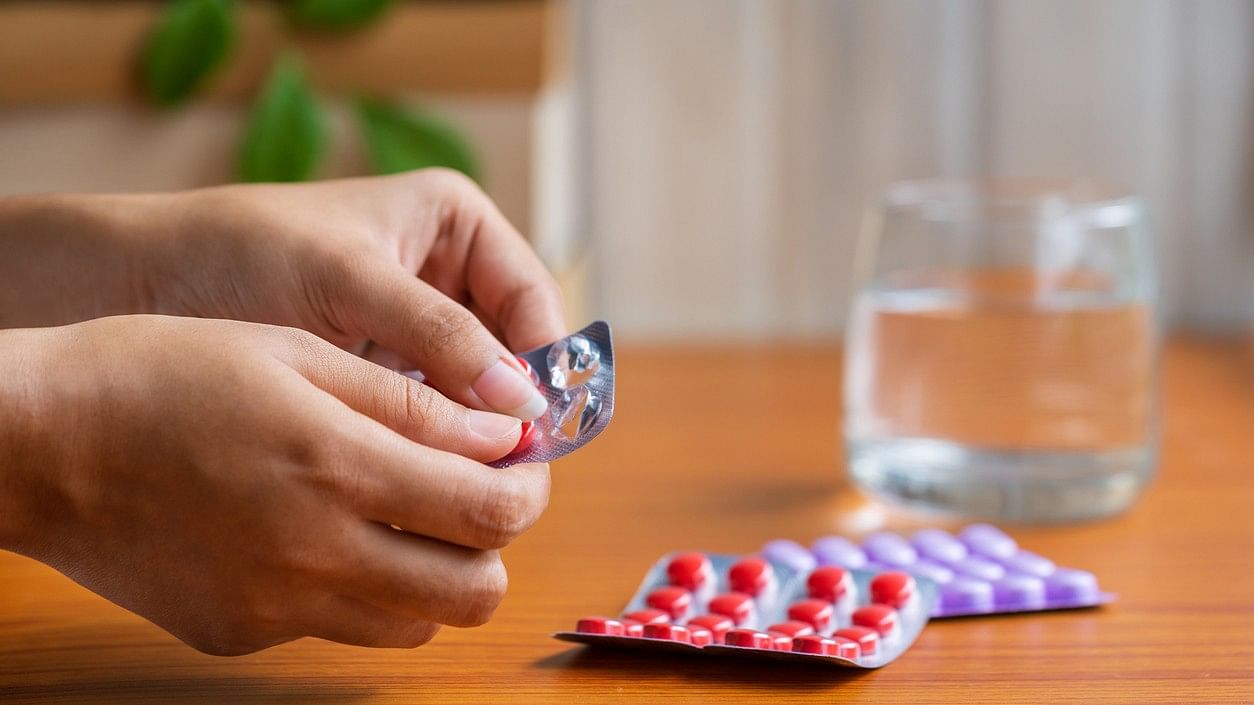
Representative image showing medicines.
Credit: iStock Photo
Julianna McLeod, 26, had her first psychotic episode while taking Vyvanse for attention-deficit/hyperactivity disorder last year.
McLeod, who lives in Ontario, Canada, had taken the drug before but paused while pregnant with her first child and didn’t start taking it again until six months postpartum.
Although the dose was 40 milligrams, she often forgot when she had last taken a pill. So she took one whenever she remembered — and may have ended up taking more than her prescribed daily dose.
The delusions that she experienced made her feel euphoric and highly energetic.
“I felt like my brain was exploding with connections,” she said. In her mind, she was a “super detective” who was uncovering the people and organisations that were secretly engaging in child sex trafficking.
She even began to believe that someone was drugging her and her baby.
Psychosis and mania are each known side effects of stimulant medications, and the Food and Drug Administration has added warnings to the medications’ labels saying that they may cause symptoms like hallucinations, delusional thinking or mania. But these side effects are considered rare — experienced by an estimated 1 in 1,000 patients — and have not been extensively researched. It can take months for someone to fully recover.
A new study published Thursday in The American Journal of Psychiatry suggests that dosage may play a role. It found that among people who took high doses of prescription amphetamines such as Vyvanse and Adderall, there was a fivefold increased risk of developing psychosis or mania for the first time compared with those who weren’t taking stimulants.
The researchers defined a high dose as more than 40 milligrams of Adderall, 100 milligrams of Vyvanse or 30 milligrams of dextroamphetamine. The medium dosage (20 to 40 milligrams of Adderall, 50 to 100 milligrams of Vyvanse or 16 to 30 milligrams of dextroamphetamine) was associated with a 3.5 times higher risk of psychosis or mania.
There was no increased risk of psychosis or mania among those who used methylphenidate drugs, like Concerta or Ritalin, regardless of the dose.
The study’s lead author, Dr Lauren V Moran, a research associate in the division of psychotic disorders at McLean Hospital in Massachusetts, decided to investigate the correlation years earlier when she was working as an inpatient psychiatrist. At the time, she often saw teenagers and young adults being hospitalised for new psychosis or mania symptoms without a history of either. Many of them were taking high doses of stimulants, usually for ADHD.
“There’s really no information on who’s at risk,” Moran said.
In the United States alone, the number of stimulant prescriptions has steadily increased since 2012, rising to approximately 79 million in 2022, according to a report published last year by IQVIA, an industry data provider. Even if only a small fraction of those people were to experience psychosis, it would still be a significant number, Moran added.
For the study, she and her colleagues examined the health records of patients ages 16 to 35 who had been admitted to McLean Hospital for their first psychiatric hospitalisations between 2005 through 2019.
The authors controlled for a variety of variables like history of depression, but it was only the dosage of amphetamine that predicted a greater risk of psychosis or mania. Patients who were 23 and older had higher odds of psychosis or mania than younger patients did, but they were also prescribed a higher average dosage of stimulant than the younger patients were.
It’s unclear why some people who take stimulants might have a greater risk of developing psychosis than others. In the study, the patients who experienced psychosis and mania were more likely to have a family history of bipolar disorder or psychosis, to use cannabis daily or to take stimulants that had not been prescribed.
“I have patients on 60-milligram Adderall tablets or extended release daily with no problems,” said Dr Max Wiznitzer, a pediatric neurologist at Rainbow Babies and Children’s Hospital in Cleveland and an ADHD expert. More research is needed to understand the risk factors for developing psychosis or mania while on stimulants, but “it appears that the amphetamine product may have triggered an underlying predisposition,” he added.
When McLeod, in Ontario, was experiencing psychosis, she said, her primary care doctor was the only person she trusted. She was hospitalised, taken off the Vyvanse and prescribed an antipsychotic medication. The delusions went away and then resurfaced weeks later. Over the course of months, she began to feel like herself again.
The gradual waning of psychotic symptoms is common among patients. “It just takes a while for the delusions to clear,” Moran said. “People have to take off a semester or even a year from college before they can go back. So it is very disruptive.”
McLeod’s brother has schizophrenia, so at first she wondered if she, too, was developing a psychotic disorder. But nearly a year later, the psychosis and mania have not returned.
She recently began taking a much lower dose of amphetamine: 10 milligrams of Adderall.
Dr Sharon Levy, chief of the division of addiction medicine at Boston Children’s Hospital, said the study offers “compelling evidence” that the use of prescription amphetamine medications in higher doses may contribute to the development of new psychotic illness. The next step will be to find out whether this same pattern is observed beyond the patients at McLean, she added.
Moran’s next study will examine this question by looking at national insurance claims data among first-time stimulant users with ADHD.
So far, her research suggests that people who are taking medium or high doses of stimulant medication should be carefully monitored and screened for symptoms of psychosis and mania, she said.